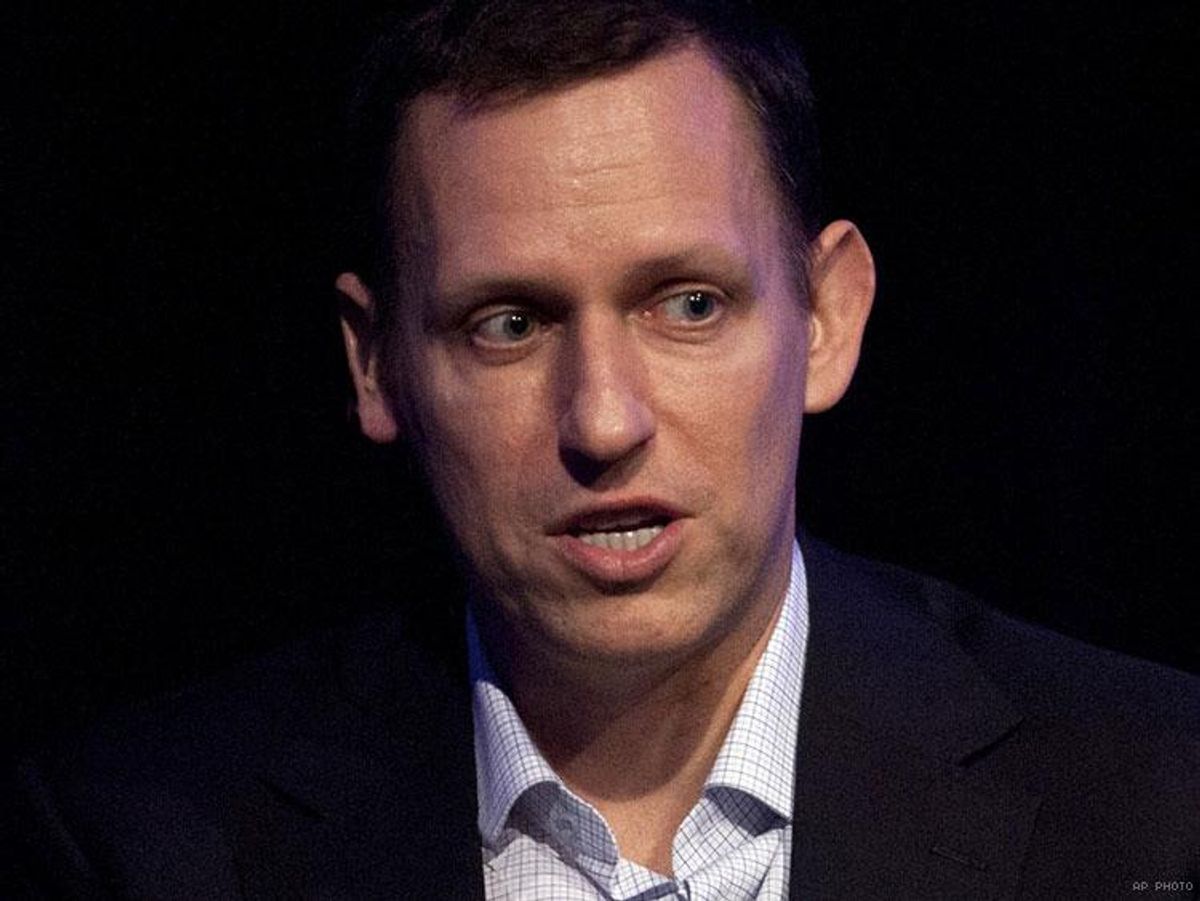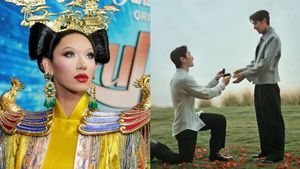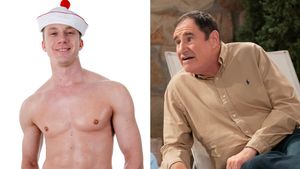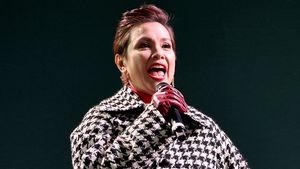New Zealand has released Peter Thiel's application for citizenship.
The paperwork, obtained by The New York Times Tuesday under the Freedom of Information Act, shows why the island nation accepted the gay entrepreneur as a citizen -- even though Thiel does not meet the usual residency requirements.
"I have consistently found New Zealanders to be open and friendly, with a 'no nonsense' way of getting the job done. The country is beautiful and has a strong environmental ethic. The government is committed to business," Thiel said admiringly in his reasons for application.
Thiel called the nation "a great place to start a business" but noted that "a thriving technology industry needs deep pools of capital for start-up companies as well as networks of experienced investors." In his estimation, these resources were "dramatically under-developed," and he offered to help address this dearth.
"I intend to devote a significant amount of my time and resources to the people and businesses of New Zealand," Thiel promised officials, while also expressing a desire to become a kind of ambassador.
"The wide global network I have cultivated would be of great value to New Zealand, and it would give me great pride to let it be known that I am a New Zealand citizen and an enthusiastic supporter of the country," he said.
"I am happy to say categorically that I have found no other country that aligns more with my view of the future than New Zealand."
It was not widely known that Thiel was a citizen of New Zealand until last week. The New Zealand Herald unearthed this information after the PayPal founder, whose fortune is valued at $2.6 billion, purchased an estate estimated at $10 million in 2015, the latest of several properties and investments in the island nation, including $3 million in the accounting firm Zero and $4 million in Pacfic Fibre. Thiel also owns a company there, Second Star.
A spokesperson for the Overseas Investment Office explained to the Herald why Thiel did not need to seek permission to purchase the property, a requirement for foreigners.
"Second Star and Mr. Thiel did not need consent as he has New Zealand citizenship," the spokesperson said.
The application confirms that he minister of internal affairs approved Thiel's citizenship in 2011 under "exceptional" circumstances, one of a handful to be granted this privilege. In his application, Thiel noted he intended to continue living in the United States and keep American citizenship, in order to maintain his business interests there.
During the application process, a spokesperson for Thiel also reminded government officials that the billionaire had donated $1 million in New Zealand dollars toward relief after a 2011 earthquake.
"Essentially, Mr. Thiel has been granted citizenship on the grounds that he is a wealthy person," Iain Lees-Galloway, a spokesman for the nation's Labour Party, told The New York Times. He criticized the approval as "getting close to corruption."
The citizenship of Thiel, a tech adviser to Donald Trump, has come under scrutiny in the wake of the president's tightening of immigration. Trump, stressing an "America First" policy in his inauguration speech, signed executive orders beginning the construction of a wall on the Mexican border and limiting travel from seven majority-Muslim nations. These actions, which included a ban on Syrian refugees, sparked protests last weekend at U.S. airports and around the world.
Last year, Thiel gave a $1.25 million contribution to Trump's presidential campaign, becoming the most high-profile figure from Silicon Valley to endorse the Republican politician. He defended Trump's recent executive order on immigration.
"Peter doesn't support a religious test, and the administration has not imposed one," Thiel said through his spokesman Jeremiah Hall.
Born in Germany, Thiel moved to the United States as an infant and became a naturalized American citizen. The newly released paperwork shows Thiel became a citizen of New Zealand in 2011, not in the nation of Kiwi people, but at the New Zealand Consulate in Santa Monica, Calif.
The New Yorker reported that New Zealand may be part of a "backup plan" embraced by Thiel and other Silicon Valley leaders, in the event of war, a nuclear attack, flu pandemic, or other natural and political disasters. The majority of Americans do not have faith in Trump's ability to handle an international crisis or use military force wisely, reports a recent Gallup poll.


















































































